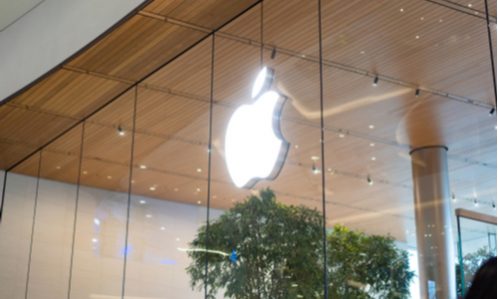Apple’s latest plan to develop its own payment processing system may test the limits of the recently approved European Digital Markets Act (DMA).
According to Bloomberg sources, Apple is planning to bring some financial services in-house, including the development of its own payment processing system, but it could also add credit checks, risks assessment for loans, and other financial services.
This revelation comes just a few days after the European Union agreed on its final draft of the DMA. Apple’s project could raise some interesting questions about the way the new EU law is interpreted by authorities in what could become the first real-world test for the landmark legislation.
The DMA will impose new obligations and restrictions on gatekeepers, mostly Big Tech firms, by the end of this year. At this point, it is well known that some of these obligations will likely force Apple to provide access for third parties to alternative payment methods in the App Store, to share more information with app developers, or even to make iMessage work with competition messaging services.
Far less known, though, is the real scope of the DMA and how it is designed to address structural features of digital platforms, as well as future conduct that could prevent competition in certain markets.
For payments, in addition to the provisions that will compel Apple and Google to provide alternative payment methods to their own in the App Stores, the DMA establishes that gatekeepers that have a dual role as developers of operating systems and device manufacturers, namely Apple and Google, cannot impose restrictions to access certain functionalities in their devices to third parties, like near-field-communication technology (NFC). NFC chips are used for “tap and go” payments.
In paragraph 52, the DMA sets out the potential problem, “a gatekeeper that is a manufacturer of a device may restrict access to some of the functionalities in this device, such as near-field-communication technology and the software used to operate that technology, which may be required for the effective provision of an ancillary service by the gatekeeper as well as by any potential third-party provider of such an ancillary service.”
Read More: The EU’s Proposal for a Digital Markets Act – an Ex-Ante Landmark
And it continues with the solution if a gatekeeper engages in such practices, “the gatekeepers should therefore be obliged to ensure access under equal conditions to, and interoperability with, the same operating system, hardware or software features that are available or used in the provision of any ancillary services by the gatekeeper.”
These provisions are drafted using broad terms and it is yet to be seen how they will be interpreted in practice, but there is a risk that Apple and Google may need to provide access, not only to current rivals but also to “potential third-party providers,” to the software and hardware that they use to provide ancillary services.
Will a new payment processing system be an ancillary service? Will Apple be able to limit access to certain features if this access represents a risk to the integrity of the system? There aren’t straight answers and most likely regulators, judges and Apple will debate the limits of the DMA on these points.
Apple may be considered a gatekeeper for certain core platform services, and this could enable third parties to request access to certain Apple functionalities. The European Commission is already investigating the NFC chip technology. The preliminary concerns were Apple’s refusal to allow rivals access to the payment system.
The new DMA now could go one step further and prevent Apple from refusing access to third parties to software and hardware that could limit the provision of any ancillary service that Apple provides.
Want more news? Subscribe to CPI’s free daily newsletter for more headlines and updates on antitrust developments around the world.

